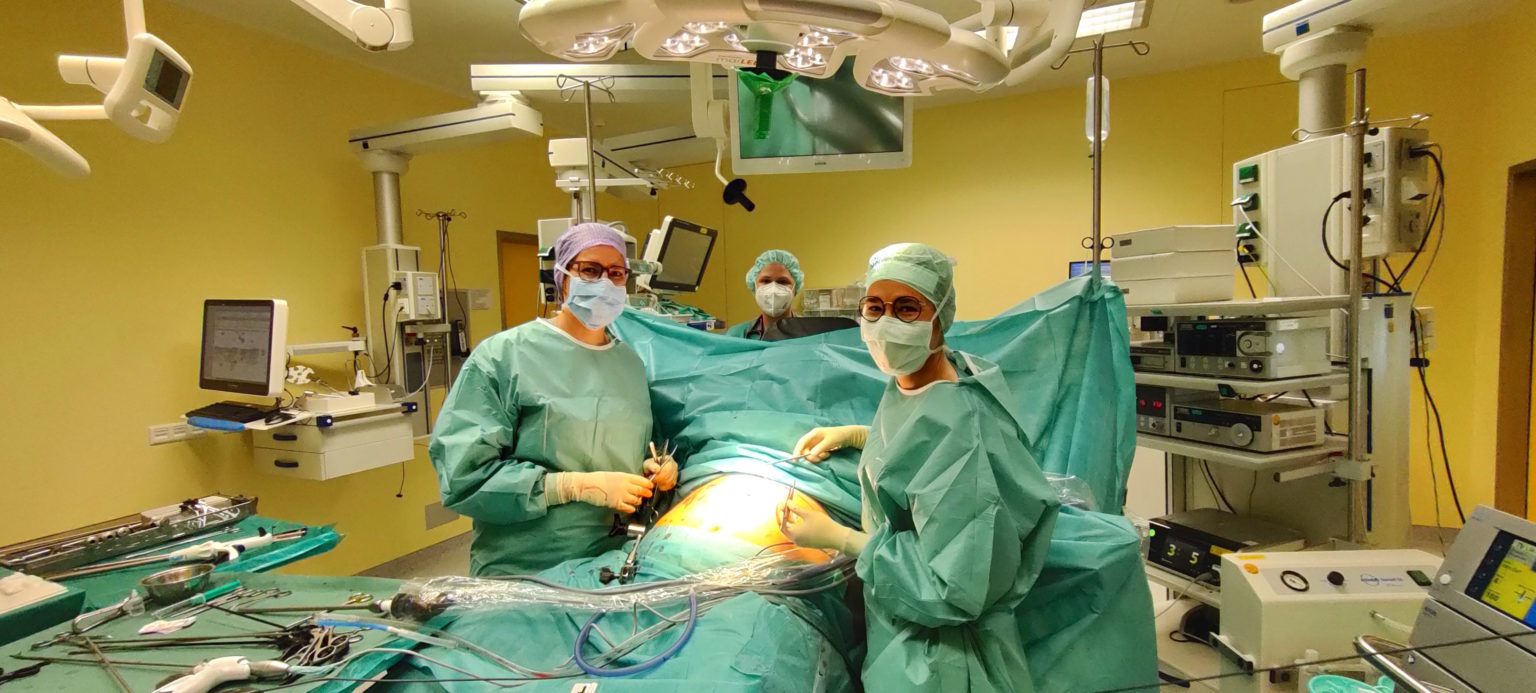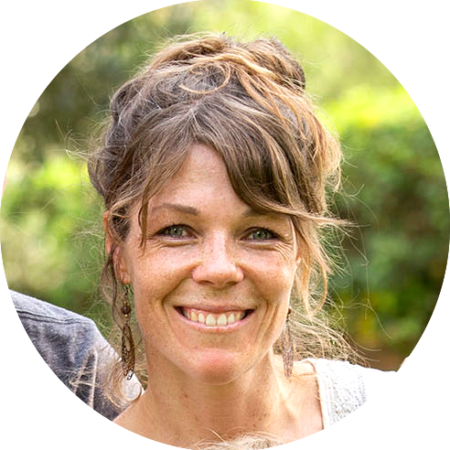For a long time, the medical profession was a male preserve. Today, women make up two thirds of medical students in Germany. However, at ten per cent, they are still heavily underrepresented in management positions. In surgery, too, it is mostly men who stand at the operating table. The association “Chirurginnen e.V.” wants to change this.
By Eva Tempelmann, Münster
“When is the senior doctor coming?” Sibel Şen often hears this question in her day-to-day work. The assistant doctor works in surgery at the Schwarzwald-Baar Clinic in Villingen-Schwenningen and loves her job. However, she is often mistaken for a nurse in everyday hospital life. “Many patients don’t trust me as a young woman working in surgery,” says the 34-year-old. “They look stunned when I tell them that I’ve just removed their gall bladder.”
Hardly any women in surgery
Surgery is still dominated by men. The proportion of women in this field is only 18 per cent. The job is considered time-consuming, challenging and family-unfriendly. “Part-time is almost a no-go in surgery,” says Şen. Anyone who wants to be successful in their career and have a family faces many obstacles. The long training period, the traditional division of roles in childcare, the ban on employment for pregnant doctors – the reasons are many and varied.
Women are also rarely found in management positions: According to the German Medical Association, only ten per cent of doctors at management level in medicine are female. In surgery, the proportion is just five per cent. Yet around 120 years after being first admitted to medical school, more than two thirds of medical students in Germany are now women. Most of them specialise in internal medicine, anaesthesia and gynaecology.
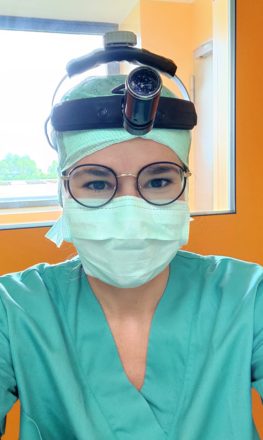
Platform for exchange and networking
To change this, committed female doctors founded the association “Die Chirurginnen“, „The Female Surgeons“, in January 2021. This was triggered by an announcement from the Professional Association of German Surgeons at the end of 2020, which painted a very positive picture of equal opportunities in their speciality. “That set alarm bells ringing for us,“ recalls Kristina Götzky, senior consultant from Hanover, thinking of the reactions among her colleagues. From a rather loose network of female surgeons who had exchanged information via the Facebook and Xing platforms, the association grew to more than 700 members within a few months, and the trend is rising.
The association wants to offer female doctors a platform for sharing experiences and knowledge and to act as a network by and for women in surgery. “Women need more comprehensive support if they want to be successful in a working world that is still shaped by patriarchal structures. This is reflected in the tone of voice, working hours and management style,” says the organisation’s website. Women are trusted less, and at the same time they have less confidence in themselves.
“That’s why we need role models,” says Şen in an interview with DEINE KORRESPONDENTIN. In her first job, the young doctor still had to fight for being able to work in the operating theatre and not just do ward rounds. “I’m a surgeon because I like working with my hands,” she says, “I like the hammering and chiselling in the operating theatre, working with a scalpel and seeing direct results.”
Create role models
Nevertheless, she repeatedly encountered resistance and scepticism during her training: patients and superiors simply did not trust the young woman to be able to work as professionally as her male colleagues. In any case, as a person with a history of migration, she constantly felt that she had to be even friendlier and more competent than others, says Şen. “Otherwise they’ll say again: the Turkish woman can’t do it.” Her colleague at the time gave the budding surgeon tips on how she could assert her wishes in the clinic: be persistent, ask to be transferred to other wards if necessary. Today, Şen finds concrete support in her day-to-day work through the association.
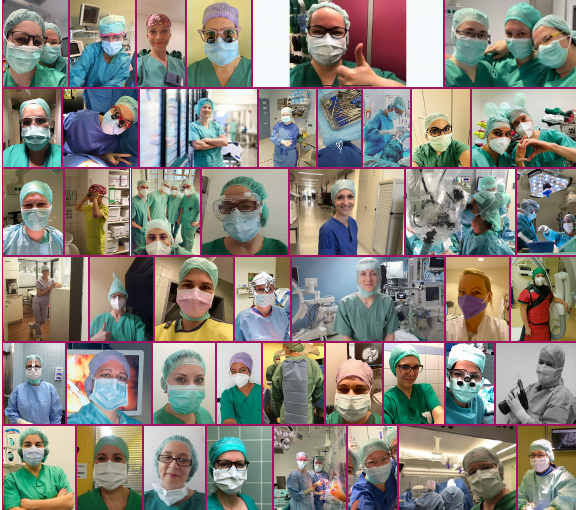
“A small example: If I’m on night duty and don’t know what to do with a particular patient, I can simply write in the night duty group’s chat and get immediate feedback.” In this way, doubts and excessive demands associated with the demanding job are quickly resolved. Şen’s current supervisor is a member of the Association of Female Surgeons – it is her greatest professional role model.
Learning from experience
Because not all young female doctors have role models in their immediate work environment, the association offers a mentoring programme in which they are brought together with experienced female doctors. The programme runs for two years and aims to provide a long-term and personal exchange of experience. The initiative also provides support for work shadowing outside of their own clinic and organises monthly training courses that impart medical knowledge and surgical skills from the various specialist areas.
„Kleines Beispiel: Wenn ich Nachtdienst habe und nicht weiß, was bei einem bestimmten Patienten zu tun ist, kann ich einfach in den Chat der Nachtdienstgruppe schreiben und bekomme sofort Rückmeldung.“ So lösten sich Zweifel und Überforderung, die mit dem anspruchsvollen Job einhergingen, schnell auf. Şens jetzige Vorgesetzte ist Beisitzerin im Verein der Chirurginnen – es sei ihr größtes berufliches Vorbild.
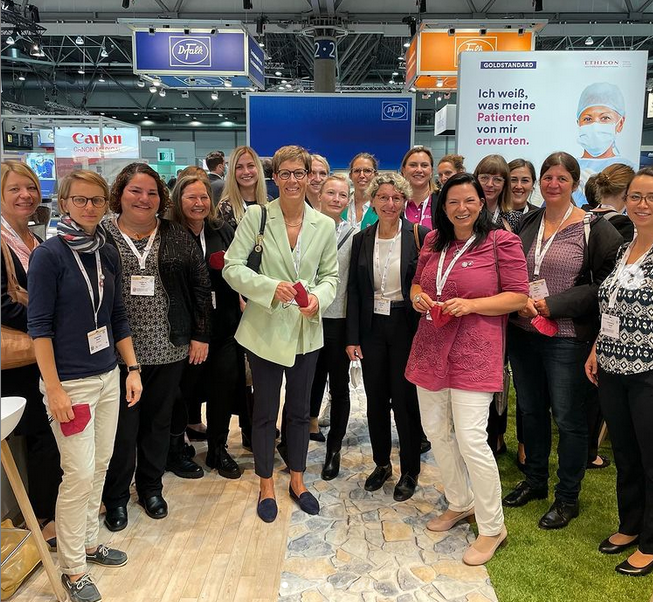
In addition to scientific topics, courses are also offered on communication, stress management and work-life balance. In the working groups, dialogue is on an equal footing. Communication takes place via the messenger service “siilo”, which – due to its high data protection standards – can also be used to organise case discussions and access information from the association.
“The dialogue is very personal, from the head physician to the student,” says Nele Rasmussen, describing the formats. The senior consultant for trauma surgery and orthopaedics from Hamburg is the contact person for younger female doctors in her department and sees the exchange as a centrepiece of mutual empowerment. During her own training, she says, she was spurred on by having to prove herself as a woman among many men.
In hindsight, she would have been grateful for more support. Rasmussen hopes that gender will no longer play a role in access to surgery in the future. “I just want equality,” says the surgeon, who, like her colleague Şen, had her career goal in mind early on. “At the end of the day, it shouldn’t matter who operates – the main thing is that the patients feel better.”
Compatibility of career and family
In order to achieve this, Kristina Götzky believes that some work structures in surgery need to change significantly. Working conditions are needed that are equally suitable for men and women. “We shouldn’t have to live in the hospital to be able to work successfully,” she summarises her demand. After the birth of her first child, she suggested a job-sharing model idea to her boss at the time, in which two people share a position 50 per cent each. Her line manager was too sceptical, but at least allowed Götzky to work from home one day in her full-time position.
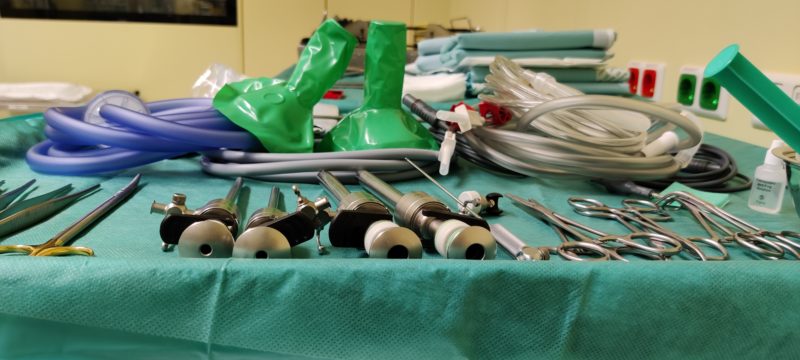
“In surgery, we don’t just work at the operating table,” explains Götzky. The administrative part – so-called doctor’s letters, operating theatre reports, quality management – accounts for at least 20 percent of the work. “Nevertheless, absolute presence still counts in surgery.” In the meantime, the mother of three has found a 75 per cent home office model that is satisfactory for both sides. “We definitely need to be more open to different work models,“ says Götzky.
This is also reflected in the problem of new recruits in hospitals: long working hours in shifts, high work pressure and moderate salaries are increasingly unattractive for prospective doctors. The association “Die Chirurginnen” is convinced that things are simply better together. Their slogan also points out that medicine in general and surgery in particular would benefit if women and men had equal career and promotion opportunities. “Men and women lead differently, make different decisions,” says Götzky, adding that this is “a great enrichment”.
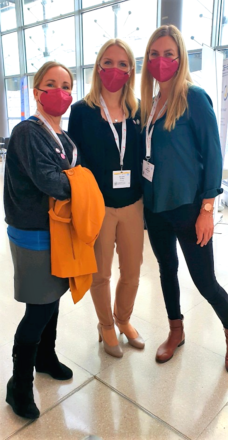
Becoming visible
Research would also change if women had more say. It was only twenty years ago that a wider public realised that women react differently to many therapies and medications than men. The reason for this is the female cycle, which can alter the effects. Drugs are thus usually tested on men – with a corresponding disadvantage for women. The pandemic has brought the topic of gender medicine more into focus.
But the old images are still persistent in people’s minds. “It’s no wonder when there are so many doctor series on TV that put men at the centre,” says Sibel Şen with annoyance. From “Bergdoktor” to “Grey’s Anatomy” – it’s always about men in leading positions, women are rather an accessory. “That’s no longer in keeping with the times,” she says.
The female surgeons and their association are well on the way to bringing their expertise in one of the most demanding fields of medicine to the public. Recently, several colleagues met at a congress and wore surgical masks in bright red– due to the pandemic. They stood out as a group, says Kristina Götzky, who was there herself. “That’s a first step: becoming visible!”

